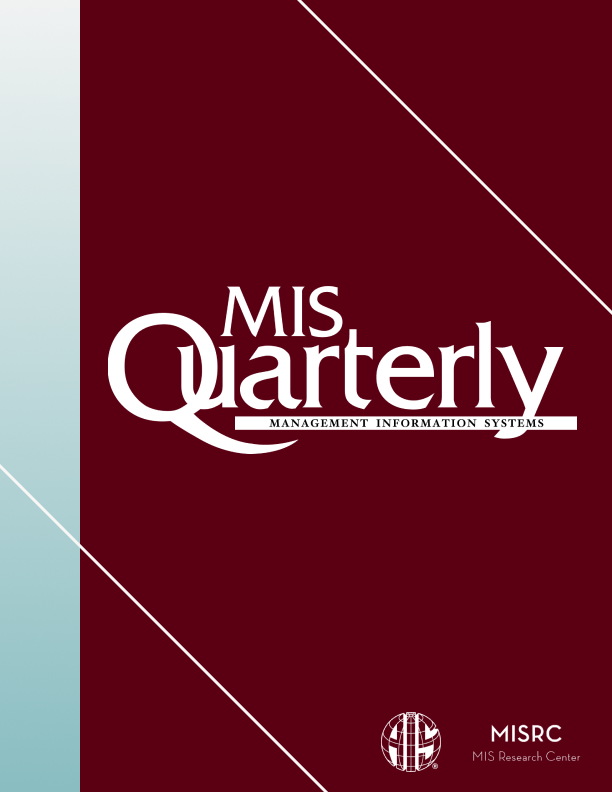Extracting Actionable Insights from Text Data: A Stable Topic Model Approach
IF 7
2区 管理学
Q1 COMPUTER SCIENCE, INFORMATION SYSTEMS
引用次数: 0
Abstract
Topic models are becoming a frequently employed tool in the empirical methods repertoire of information systems and management scholars. Given textual corpora, such as consumer reviews and online discussion forums, researchers and business practitioners often use topic modeling to either explore data in an unsupervised fashion or generate variables of interest for subsequent econometric analysis. However, one important concern stems from the fact that topic models can be notorious for their instability, i.e., the generated results could be inconsistent and irreproducible at different times, even on the same dataset. Therefore, researchers might arrive at potentially unreliable results regarding the theoretical relationships that they are testing or developing. In this paper, we attempt to highlight this problem and suggest a potential approach to addressing it. First, we empirically define and evaluate the stability problem of topic models using four textual datasets. Next, to alleviate the problem and with the goal of extracting actionable insights from textual data, we propose a new method, Stable LDA, which incorporates topical word clusters into the topic model to steer the model inference toward consistent results. We show that the proposed Stable LDA approach can significantly improve model stability while maintaining or even improving the topic model quality. Further, employing two case studies related to an online knowledge community and online consumer reviews, we demonstrate that the variables generated from Stable LDA can lead to more consistent estimations in econometric analyses. We believe that our work can further enhance management scholars’ collective toolkit to analyze ever-growing textual data.从文本数据中提取可操作的见解:一种稳定的主题模型方法
#html-body [data- pbstyle =HT8IJA3]{justify-content:flex-start;display:flex;flex-direction:column;background-position:left top;background-size:cover;background-repeat: not -repeat;给定文本语料库,例如消费者评论和在线讨论论坛,研究人员和业务实践者经常使用主题建模以无监督的方式探索数据,或者为随后的计量经济分析生成感兴趣的变量。然而,一个重要的问题源于这样一个事实,即主题模型可能因其不稳定性而臭名昭著,即生成的结果可能在不同时间不一致且不可复制,即使在相同的数据集上也是如此。因此,对于他们正在测试或发展的理论关系,研究人员可能会得出潜在不可靠的结果。在本文中,我们试图强调这一问题,并提出解决这一问题的潜在方法。首先,我们使用四个文本数据集对主题模型的稳定性问题进行了实证定义和评估。接下来,为了缓解这一问题,并以从文本数据中提取可操作的见解为目标,我们提出了一种新的方法——稳定LDA,它将主题词聚类纳入主题模型,以引导模型推理朝着一致的结果发展。我们证明了所提出的稳定LDA方法可以显著提高模型的稳定性,同时保持甚至提高主题模型的质量。此外,采用两个与在线知识社区和在线消费者评论相关的案例研究,我们证明了稳定LDA产生的变量可以在计量经济学分析中导致更一致的估计。我们相信,我们的工作可以进一步增强管理学者的集体工具包,以分析不断增长的文本数据。
本文章由计算机程序翻译,如有差异,请以英文原文为准。
求助全文
约1分钟内获得全文
求助全文
来源期刊

Mis Quarterly
工程技术-计算机:信息系统
CiteScore
13.30
自引率
4.10%
发文量
36
审稿时长
6-12 weeks
期刊介绍:
Journal Name: MIS Quarterly
Editorial Objective:
The editorial objective of MIS Quarterly is focused on:
Enhancing and communicating knowledge related to:
Development of IT-based services
Management of IT resources
Use, impact, and economics of IT with managerial, organizational, and societal implications
Addressing professional issues affecting the Information Systems (IS) field as a whole
Key Focus Areas:
Development of IT-based services
Management of IT resources
Use, impact, and economics of IT with managerial, organizational, and societal implications
Professional issues affecting the IS field as a whole
 求助内容:
求助内容: 应助结果提醒方式:
应助结果提醒方式:


